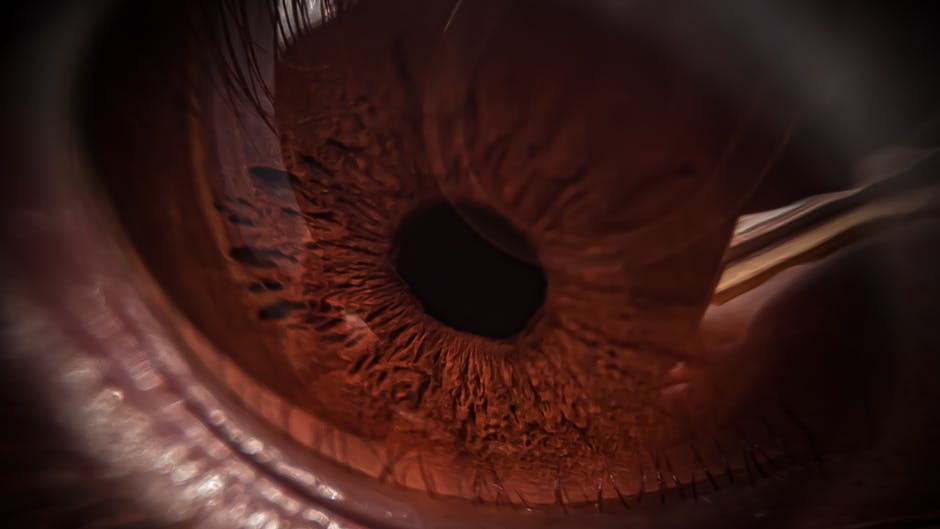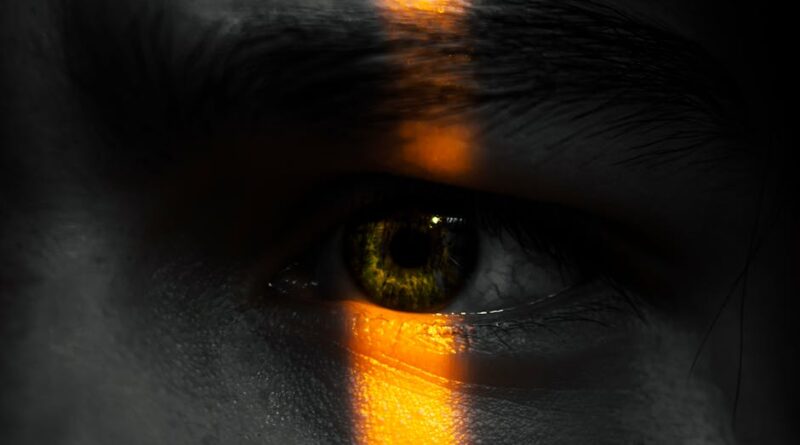The Psychological Impact of Eye Conditions
Did you know that around 2.7 billion people worldwide suffer from some form of vision impairment? That’s a staggering number! Eye conditions not only affect how we see the world but also how we feel about ourselves and our lives. In this article, well explore the psychological effects of eye conditions, how they impact daily life, and what you can do to cope.
How Do Eye Conditions Affect Mental Health?

People with eye conditions often face more than just physical challenges. They may experience anxiety, depression, or low self-esteem. it’s not just about seeing clearly; it’s about how those conditions shape personal identity and social interactions.
Imagine trying to read a book you love, but the words are blurry. Frustrating, right? This struggle can lead to feelings of helplessness. Studies show that people with severe visual impairment are more likely to experience depression compared to those without any vision issues.
What Are Some Common Psychological Reactions?

When faced with eye conditions, different people respond in various ways. Here are some common reactions:
- Frustration: Not being able to see well can be annoying. Simple tasks like reading or driving can become big hurdles.
- Isolation: People may avoid social situations because of their vision problems, leading to loneliness.
- Fear: There may be fears about losing independence or becoming completely blind.
- Denial: Some might refuse to accept their condition, which can hinder their ability to seek help.
These reactions can vary based on the severity of the eye condition and personal resilience.
What Is the Impact on Daily Life?

The effects of eye conditions extend into various aspects of daily life:
- Work: Many jobs require good vision. Eye conditions can limit job opportunities or make tasks difficult.
- Social Life: Friends may not understand the challenges faced, leading to strained relationships.
- Hobbies: Activities like reading, cooking, or even watching movies can be affected, reducing overall enjoyment.
All these factors can lead to a cycle of negative emotions. When daily life becomes challenging, mental health can take a hit.
How Can Eye Conditions Affect Self-Image?

Self-image is how we view ourselves and our worth. Eye conditions can challenge this perception. For example, a person might feel less attractive if they need to wear glasses or use a cane. They may worry about how others perceive them.
Social pressure can amplify these feelings. Some people might think wearing glasses makes them look older or less fashionable. These thoughts can spiral into anxiety and low self-esteem.
What Can Help? Coping Strategies for Better Mental Health
it’s essential to address the psychological impact of eye conditions. Here are some helpful strategies:
- Seek Professional Help: A therapist can help manage feelings of anxiety or depression.
- Join Support Groups: Connecting with others facing similar challenges can provide comfort and understanding.
- Stay Active: Physical activity is great for mental health. It can boost mood and reduce anxiety.
- Educate Yourself: Understanding your eye condition can empower you. Knowledge is a powerful tool.
- Practice Self-Compassion: Be kind to yourself. it’s okay to feel frustrated or sad.
Incorporating these strategies can help improve emotional well-being.
Can Technology Assist with Eye Conditions?
Yes! Technology plays a significant role in helping those with eye conditions. There are many tools designed to improve vision and enhance daily life:
- Apps: Several apps can enlarge text or read aloud for those with visual impairments.
- Smart Glasses: These devices can help people see better by adjusting focus automatically.
- Voice-Activated Assistants: Devices like Siri or Alexa can help manage tasks without needing to see a screen.
Embracing technology can make a big difference in managing daily tasks and enhancing independence.
What About Children with Eye Conditions?
Children with eye conditions face unique challenges. They might struggle in school or feel left out during playtime. Early diagnosis and intervention are crucial. Parents can help by:
- Encouraging Open Communication: Talk with children about their feelings. Let them express their frustrations.
- Advocating for Support: Ensure they have access to resources, like special education services.
- Promoting Inclusivity: Foster friendships and social interactions with peers.
By providing support and resources, parents can help boost a child’s confidence and resilience.
What Are Common Misconceptions?
Many myths exist around eye conditions and their impact on mental health. Here are a few:
- Eye conditions only affect older people. This is false. Eye issues can affect anyone, regardless of age.
- People with vision impairment can’t live independently. Many individuals lead independent lives with the right tools and support.
- it’s all in their head. The psychological impact of visual impairment is real and deserves attention.
Understanding these misconceptions can foster empathy and support for those facing visual challenges.
How Can Friends and Family Help?
Support from friends and family is vital. Here are some ways to be there for loved ones:
- Listen: Sometimes just being there to listen can mean the world.
- Educate Yourself: Learn about their eye condition to understand what they’re going through.
- Encourage Activities: Engage them in activities that don’t rely heavily on vision.
- Be Patient: Understand that some days may be harder than others.
Your support can help them feel less alone in their journey.
Where Can You Find More Information?
For more resources on eye health and psychological support, check out the American Academy of Ophthalmology at aao.org. They offer valuable insights and tools for those affected by eye conditions.
Conclusion: Take Charge of Your Mental Health
Eye conditions can be tough, but they don’t have to define you. Understanding the psychological impact is the first step toward managing it. By exploring coping strategies, utilizing technology, and seeking support, you can improve both your vision and mental health.
Remember, you are not alone. Reach out for help, educate yourself, and stay active. Your journey can inspire others, and together we can create a more supportive world for those with eye conditions.
Take the first step today. Whether it’s talking to a friend, seeking professional help, or simply finding a new hobby, every little action counts. Your mental health matters!



